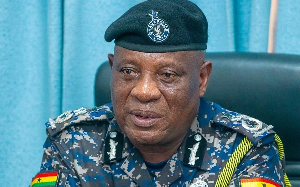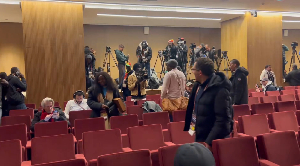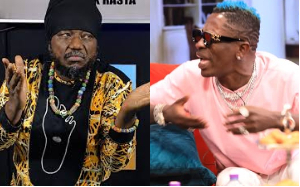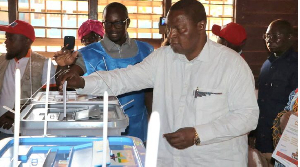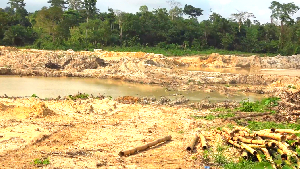By Kofi Ata, Cambridge, UK
Just under two weeks ago, I posted an article to criticise the unguarded and irresponsible language of politicians, especially from the main opposition party (NPP) and specifically, Nana Obiri Boahene for saying that "anybody who wants to still see the NDC in power after their current term in office expires, needs to go to Ankaful Psychiatric Hospital for brain scan" (see, “Is President Mahama a Lunatic?”, Ghanaweb and Modernghana, April 27, 2014). Little did it occur to me that the President of the Republic will also fall victim to his tongue with his choice of words. In this article I want to discuss the implications of the language of President Mahama on his visit to Kumasi.
President Mahama in an address to NDC faithful at the Regional Coordinating Council in Kumasi said among others that “there is an Akan proverb which says no matter how nice the dance of the fowl is, it never impresses the hawk – when the fowl dances, the hawk never find it beautiful”. He went on to say that “don’t let this deter us because for you in Kumasi, even if we construct roads tarred with gold, you will still say we’ve done nothing.”
Let me point out that there is controversy over exactly what the President said, particularly regarding where he used the word “Kumasi” or you in Kumasi. I have heard two versions on Citi FM and according to the Morning Show presenters one version was doctored to make the president statement appear openly divisive. The authentic version which the station’s reporter recorded live with the President speaking in Akan, the president used the words “some people in Kumasi” and not referring to the whole of Kumasi. Notwithstanding where the Kumasi appeared in his speech, should this be the language of the President?
My answer is, equivocally no because President Mahama is the president of the nation and not the campaign manager of his party, NDC. Whether the President is talking to his party members or not, he must always use language that unifies the country and not polarise the people on region, party, ethnic, religious, urban, rural or any other factors.
Again, and as I said in my above mentioned article, the President as a seasoned politician should know that some generations of families, individuals and voters would never vote for the candidate of a particular party, irrespective of the excellent credentials of the candidate, his/her policies, programmes and his or her party’s election manifesto. It was therefore uncalled for and naive on the part of the President to moan about this party political reality.
In fact, the President accusation of the some people in Kumasi not being appreciative of NDC’s development programmes in Kumasi is not supported by the facts on the grounds and the evidence. In the 2012 presidential election, the then Interim President and candidate John Dramani Mahama increased the percentage share of the total votes in the Asante region, including Kumasi relative to what candidate John Evans Attah Mills got in 2008. That is an indication of some people and voters in Kumasi appreciating either your work or NDC’s work or both to be rewarded with increased percentage share of votes. To make such accusation is very sad and rather smacks of ungratefulness on part of the President.
The President ought to have known that even in the NDC stronghold of Volta Region, not every voter voted for him or NDC in 2012. Again, in the president’s home region of Northern Region or even his home constituency, not all voters voted for him or NDC in 2012. This is not because those who did not vote for him or his party do not necessarily appreciate their work but in a multi-party democracy, people and voters make different choices based on different factors such as policies and programme, performance, manifesto, ideology, affiliation to party, individual or a group, personality, region, ethnicity, religion and faith or belief, sex and others.
For the above reasons, the President and NDC could tar all the roads in Ghana with gold, paint all the buildings with diamond and all rooms with silver, yet, there will be some voters who will not vote for him or NDC in 2016. It’s simply not because they do appreciate such generosity but the spirit of multi-party democracy demands that voters think and vote differently and that is rational. In fact, what the president is complaining about is irrational because if every voter in Kumasi voted for him or NDC, they would cease to be rational beings and become zombies.
Whilst I detest the politics of equalisation, it is reasonable to make comparative analysis. What would Ghanaians, especially NDC propagandists say, had this statement been made by Nana Akufo-Addo or an NPP presidential candidate in Ho? It would have been considered as an insult to the people of Ho or even Volta Region. If it would be wrong and insulting for an opposition party presidential candidate to use such language in one city in Ghana, then why should it be acceptable for the President to use the same in another city? It’s even more serious when it’s the President.
For me the statement, the analogy with the Akan proverb was wrong and divisive. Though the use of the words “Akan proverb” is a fact, it has some element of risk of misinterpretation and should be avoided. For example, in Ghana and most societies globally, proverbs have their equivalent in all languages so the most appropriate language to use and to bring unity is say “a Ghanaian proverb”.
The President should be told in no uncertain terms that, playing double roles of leader of the nation as well as leader of his party in public is dangerous and he must desist from doing that. He can play the role of NDC Leader when he meets NDC in private but in public, whether addressing exclusively party supporters or not, his utterances should not be partisan and divisive but an encouragement for unity and building one nation, one people with one destiny.
Kofi Ata, Cambridge, UK
Opinions of Friday, 9 May 2014
Columnist: Ata, Kofi


